Ketones and Emotions: Depression, Anxiety & Irritability
Keto may help boost your mood. Find out why!
HEALTHY KETOGENIC DIET AND INTERMITTENT FASTING:
https://drbrg.co/43eFeRK
WATCH THIS INTERVIEW:
▶️ https://youtu.be/NRB8ZF8gpKg
DATA:
https://www.ncbi.nlm.nih.gov/pmc/articles/PMC2942090/
https://pubmed.ncbi.nlm.nih.gov/24862430/
https://www.ncbi.nlm.nih.gov/pmc/articles/PMC5357645/
Timestamps
0:00 Introduction: ketones and emotions
1:19 What does the research say?
3:48 Diet-related mood disorders
4:36 Micheal’s story
5:45 Other reasons insulin resistance affects your mood
7:06 Key takeaways
7:23 Share your success story!
In this video, we’re going to talk about ketones and emotions.
What is the relationship between ketones and your mood? Can being on keto help with depression, anxiety, anger, and irritability?
Those who do keto and periodic prolonged fasting often experience a huge improvement in their mental health.
When you’re in an argument with someone, there is an obvious cause of your anger (the person or topic).
But what about times when you’re angry, anxious, irritable, or depressed without an obvious reason or trigger? How much of this is due to a lack of nutrition or fuel for your brain?
There have been a handful of studies on these very questions. However, they are primarily observational studies and animal studies. Many also aren’t truly using a ketogenic diet or doing intermittent fasting. All in all, the research isn’t credible enough to draw a conclusion.
Here’s what we do know… There’s something called brain insulin resistance, where the brain is not getting enough insulin because of decreased insulin sensitivity. This is directly related to depression and low moods.
Additionally, diabetics are 3x more likely to have depression.
We also know that metformin, which is made to help with insulin resistance, can help with the symptoms of depression. Nasal insulin sprays also help decrease the symptoms of depression.
When you fix insulin resistance, you can improve your brain function and boost your mood.
Fasting also increases the absorption of tryptophan, which is a precursor for the “happiness” hormone serotonin.
When a person is misdiagnosed with a mental disease instead of a nutritional deficiency, this can be a huge problem. Not only will the problem not be resolved, but they are also likely being given medications with side effects.
The HPA axis, which is the hypothalamus, pituitary, and adrenal pathway, is also affected by keto. When you have higher levels of cortisol, the pathway becomes blocked, which can cause anxiety.
Keto and fasting may also help regulate dopamine and serotonin, which are the pleasure and happiness hormones, respectively.
Insulin resistance and diabetes can cause atrophy of the hippocampus, which has a direct effect on your mood.
Disclaimer:
Dr. Eric Berg received his Doctor of Chiropractic degree from Palmer College of Chiropractic in 1988. His use of “doctor” or “Dr.” in relation to himself solely refers to that degree. Dr. Berg is a licensed chiropractor in Virginia, California, and Louisiana, but he no longer practices chiropractic in any state and does not see patients so he can focus on educating people as a full time activity, yet he maintains an active license. This video is for general informational purposes only. It should not be used to self-diagnose and it is not a substitute for a medical exam, cure, treatment, diagnosis, and prescription or recommendation. It does not create a doctor-patient relationship between Dr. Berg and you. You should not make any change in your health regimen or diet before first consulting a physician and obtaining a medical exam, diagnosis, and recommendation. Always seek the advice of a physician or other qualified health provider with any questions you may have regarding a medical condition.
Thanks for watching. I hope this helped explain the connection between ketones and your mood. I’ll see you in the next video.
-
 6:02
6:02
Dr. Eric Berg
6 years agoReason Why You Feel So Irritable on Keto ? – Dr. Berg on Mood Swings & Ketosis
5 -
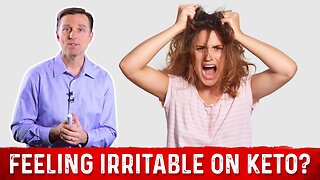 3:29
3:29
Dr. Eric Berg
6 years agoWhy Am I Feeling So Irritable On Keto (Ketogenic Diet)? – Dr. Berg
7 -
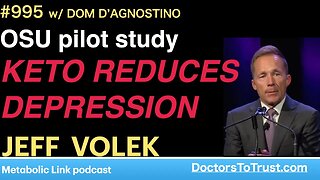 3:16
3:16
Doctors To Trust
9 months agoJEFF VOLEK a | OSU pilot study. KETO REDUCES DEPRESSION
75 -
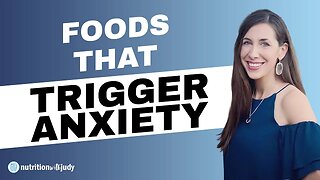 1:15:27
1:15:27
Nutrition with Judy
1 year agoFoods That Trigger Anxiety | Ali Miller RD Interview
45 -
 1:55
1:55
Dr Berry's Proper Human Diet
6 years agoShould I Take Exogenous Ketones?
40 -
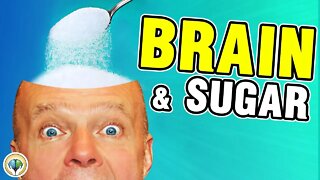 11:41
11:41
Dr. Sten Ekberg
5 years agoKeto Diet Epilepsy (Brain And Sugar)
42 -
 4:14
4:14
Natural Cures
4 years agoHow Your Diet Can Affect Your Mood and Sleep (Nutritional Psychiatry)
25 -
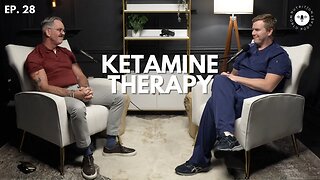 36:42
36:42
nutritionworld
9 months ago $0.15 earnedNWP Ep. 28 | Is Ketamine Therapy Right for You?
265 -
 7:33
7:33
Dr. Becky Fitness
1 year agoSugar Cravings-Why Your Brain Made You Do It & How to Break Free
1141 -
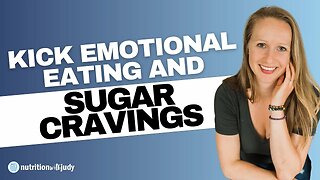 1:13:43
1:13:43
Nutrition with Judy
1 year agoControlling Sugar Cravings & Emotional Eating with the Proper Tools - Danielle Daem
22